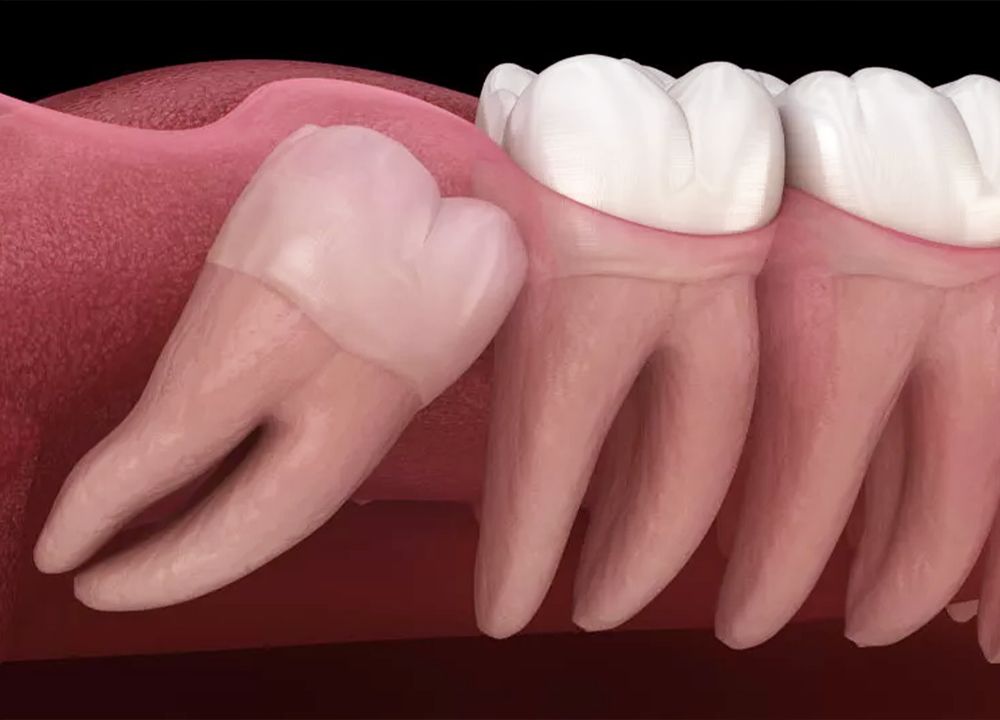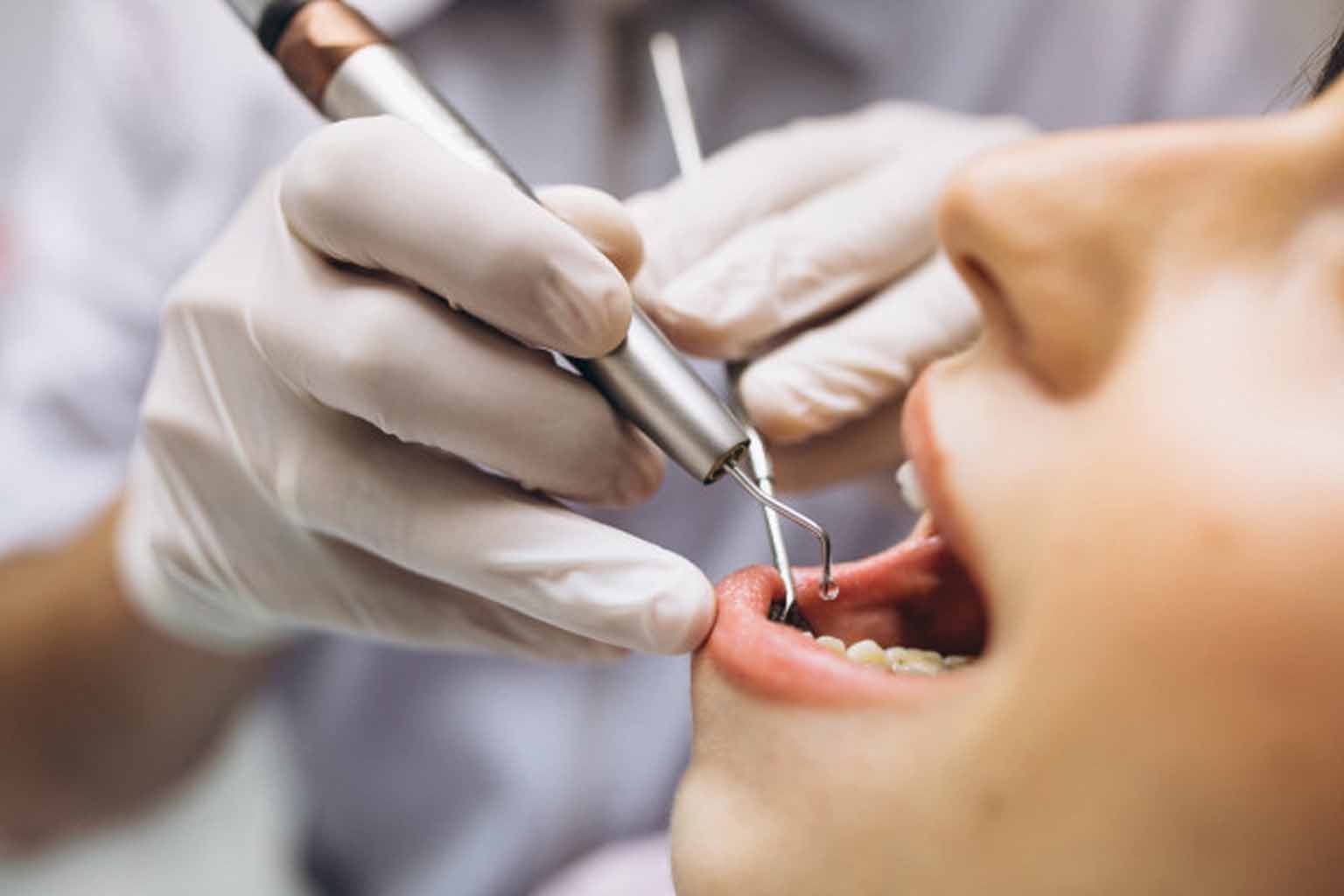While you’re a youthful adult, the last four permanent teeth to emerge in your mouth are the third molars, also well-known as wisdom teeth. These impacted wisdom teeth typically arrive through the late teen years or early adolescence. They’ve termed wisdom teeth as they’re the last teeth to occur. You’re likely “wiser” when those teeth come in.
However, rather than providing us with the wisdom, we would want, they usually mature unsettled – indeed, for those of us who have the most excellent oral health.
While wisdom teeth complications occur, dentists frequently advise extracting them; furthermore, there are many causes this might be the smartest thing to do.
What is Impacted Wisdom Teeth?
If a wisdom tooth gets rooted beneath your gum or doesn’t have an adequate place to intrude through the gum, it’s termed as “impacted.” Impacted wisdom teeth are higher inclined to infection, tooth deterioration, and other dental complications.
Impacted wisdom teeth are third molars at the back of the mouth that don’t get enough place to develop or grow ordinarily. Many people have four wisdom teeth at the back of the mouth — a pair on the uppermost portion, and another pair on the base. Impacted wisdom teeth could advance in discomfort, destruction to other teeth, furthermore other dental difficulties. In a few cases, impacted wisdom teeth might create no clear or critical problems.
Merely because they’re difficult to clean, they might be weaker to tooth deterioration and gum infection than other teeth are. Wisdom teeth could be as helpful as any of your other teeth, however as they are in the extreme back of the mouth, they usually don’t get sufficient place to develop in. It’s not uncommon for wisdom teeth to appear lopsided or sidelong in the jaw, preventing them from erupting into the mouth fitly.
The Symptoms of Impacted Wisdom Teeth
Many people with impacted wisdom teeth are less likely to identify any problems at all, whereas others will have prominent symptoms. An impacted wisdom tooth may occur within the gums, plus a portion of the gums is noticeable, well-known as a partially impacted or affected wisdom tooth.
A partially impacted wisdom tooth might let the food get confined and could make brushing the tooth further complicated. For a few people, a partially impacted tooth is extremely uncomfortable.
 Impacted Wisdom Teeth
Impacted Wisdom TeethIf the tooth matures infected or creates other concerns, you are likely to have symptoms such as:
- discomfort or swelling near the jaw
- red, enlarged, or bleeding gums
- bad breath
- a bothersome taste in your mouth
- difficulties opening your mouth
In different circumstances, the affected tooth might never pierce within the gums; this is well-known as a fully impacted wisdom tooth.
What Induces An Impacted Wisdom Tooth?
Ordinarily, wisdom teeth convert as your jawbone doesn’t have sufficient area for the teeth. At times, the tooth develops at an improper angle, which can induce it to convert to impact.
 Impacted Wisdom Teeth
Impacted Wisdom TeethHow are Complications with Wisdom Teeth Diagnosed?
Your dentist will examine for symptoms of a wisdom tooth developing within your gum or pushing other teeth. You will have X-rays to detect if your wisdom teeth are creating obstacles or are prone to induce difficulties in the future.
 Impacted Wisdom Teeth
Impacted Wisdom TeethImpacted Wisdom Teeth Treatment
If your wisdom teeth induce signs or dental complications, your dentist is likely to recommend taking them out. Surgery to extract wisdom teeth is ordinarily an outpatient approach. You can go home on the very day.
An oral surgeon or dentist performs the procedure, termed as wisdom tooth extraction. As part of the operation, your doctor might use anesthetic medications to cause a kind of anesthesia, such as:
- general anaesthesia to make you rest furthermore not sense anything throughout the extraction procedure
- local anaesthesia to numb your mouth
- sedation anaesthesia to ease you and prevent pain from impacted wisdom teeth treatment
Throughout the operation, the oral surgeon will pierce your gums and exert out troublesome bone before extracting the tooth. They’ll seal the cut with stitches and stuff the area with a dressing. The whole surgery typically takes around 30 to 35 minutes.
 Impacted Wisdom Teeth
Impacted Wisdom TeethIf your teeth are wholly affected and rooted deep inside your gums or jawbone, it may be more difficult for your operator to pluck them than if they’ve cracked within the gum.
Recovering from Impacted Wisdom Teeth Removal
Many people can get back to their routine life some days after impacted wisdom tooth extraction. It takes up to four weeks for your mouth to adequately recover. You apparently might not be able to move your mouth usually for approximately six to seven days, so you’ll require to consume soft foods.
Following surgery, you might undergo some discomfort, pain, and swelling. Your dentist will give you specific guidance for handling ache, such as taking pain medicines and applying cold compresses. Though unusual, you might incur a sore, dry opening. This appears when the blood clot that’s assumed to develop post-surgery doesn’t set correctly or matures uprooted from the socket and exhibits bone.
Complexities of Impacted Wisdom Teeth
Wisdom teeth are difficult to brush, plus food can get confined in them. If you don’t remove your wisdom tooth, it can drive to specific complexities, such as:
- crowding of nearby teeth
- difficulty flossing
- decay to other teeth
- cysts
- gum infection
- infection
- cavities
- decay
Word of Caution
There’s a possibility that your impacted wisdom tooth won’t create any obstacles; in this scenario, your dentist may advise leaving it alone. In case you and your dentist choose to sidestep surgery, you observe for any implied dental complications. It’s essential to attend your dentist routinely and floss around your wisdom teeth.
You can’t keep an impaction from befalling; however, maintaining typical six-month dental appointments for checkups and cleaning allows your dentist to observe the maturity and appearance of your wisdom teeth. Frequently upgraded dental X-rays might mean impacted wisdom teeth before indications emerge.
A wisdom tooth may not create any difficulties at all. However, if you do have traits, surgery might be essential if you are having your wisdom teeth extracted while younger might direct to more favorable outcomes.
Also Read: Wisdom Teeth After Extraction

